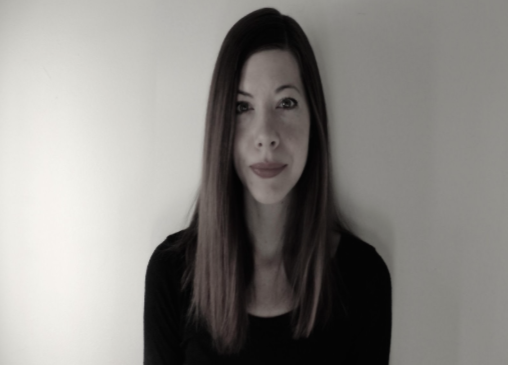6th ANNUAL NAPOMO 30/30/30 :: DAY 8 :: E.G. Cunningham on Martha Ronk
[box][blockquote]HAPPY POETRY MONTH, FRIENDS AND COMRADES!
For this, the 6th Annual iteration of our beloved Poetry Month 30/30/30 series/tradition, I asked four poets (and previous participants) to guest-curate a week of entries, highlighting folks from their communities and the poets who’ve influenced their work.
I’m happy to introduce Janice Sapigao, Johnny Damm, Phillip Ammonds, and Stephen Ross, who have done an amazing job gathering people for this years series! We’re so excited to share this new crop of tributes with you. Hear more from our four guest editors in the introduction to this year’s series.
Hungry for more? there’s 150 previous entries from past years here! You should also check out Janice’s piece on Nayyirah Waheed, Johnny’s piece on Raymond Roussel, Phillip’s piece on Essex Hemphill, and Stephen’s piece on Ronald Johnson’s Ark, while you’re at it.
This is a peer-to-peer system of collective inspiration! No matriculation required.
Enjoy, and share widely.
– Lynne DeSilva-Johnson, Managing Editor/Series Curator [/blockquote][/box]
[line][line]
[box] WEEK TWO :: CURATED BY JOHNNY DAMM
PROPOSITION:
Every time a WRITER sees another WRITER on the street, WRITER # 1 yells the following question:
“Who are you reading?”
WRITER # 2 answers, also yelling, and at the first word, EVERYONE on the street stops walking, presses hands over mouths of cooing/crying babies, slams down car brakes and hurriedly unrolls windows.
EVERYONE listens, the world not allowed to resume until WRITER # 2 stops yelling.
SMALL REVISION:
Keep everything exactly the same, except make sure that WRITER # 2 is a talented writer, a fascinating writer, that WRITER # 2 is the present or future of what literature should be.
PROPOSITION:
Hush, y’all. Listen as Colette Arrand, Stephen Emmerson, Vanessa Angélica Villarreal, E.G. Cunningham, Douglas Luman, Travis Sharp, Raquel Salas Rivera, and Terri Witek yell into the street. [line]
Johnny Damm is the author of Science of Things Familiar (The Operating System, 2017) and three chapbooks, including Your Favorite Song (Essay Press, 2016), and The Domestic World: A Practical Guide (Little Red Leaves, forthcoming). His work has appeared in Poetry, Denver Quarterly, the Rumpus, Drunken Boat, and elsewhere. Visit him online at johnnydamm.com. [/box]
[line][line]
E.G. Cunningham on Martha Ronk

[line][script_teaser]“We are lost in the eternal present | And you have caused yourself to be missing” [/script_teaser]
[line]
[box]
In a landscape of having to repeat
In a landscape of having to repeat.
Noticing that she does, that he does and so on.
The underlying cause is as absent as rain.
Yet one remembers rain even in its absence and an attendant quiet.
If illusion descends or the very word you’ve been looking for.
He remembers looking at the photograph,
green and gray squares, undefined.
How perfectly ordinary someone says looking at the same thing or
I’d like to get to the bottom of that one.
When it is raining it is raining for all time and then it isn’t
and when she looked at him, as he remembers it, the landscape moved closer
than ever and she did and now he can hardly remember what it was like.
[/box]
In its noun form, place refers to the intransigent materiality of the speaker’s world, a world shaped as much by historical and geographical location as it is by the speaker’s subjective interiority. As a verb, place suggests an exchange within fields of location, as well as an ability to give, to invest, to recognize—to commune with signified and signifier.
To place oneself in the ordinariness of daily life; to locate the placehood of dailiness: these are the paradoxes of identification through which Martha Ronk’s In a Landscape of Having to Repeat dreams and sifts. The book consists of three sections—1. In a Landscape of Having to Repeat; 2. In the Vicinity; 3. Quotidian—that, despite slippages among their various forms, cohere around a central investigation of the familiar.
I first read Martha Ronk’s work in graduate school, starting with In a Landscape of Having to Repeat, and was stricken by her ability to illuminate the startling misalignments that infuse domestic life. The collection takes several cues from Freudian psychoanalysis, most overtly the concept of repetition compulsion, and Ronk quotes briefly from The Psychopathology of Everyday Life, Interpretation of Dreams, and Freud’s definition of the unheimlich/uncanny. Given Freud’s influence, it’s surprising how Ronk eschews the confessional mode and instead weaves a plane of intersecting and reinforcing lines of observation. Here nouns become malleable signifiers, decontextualized and recontextualized through repetition, rendering observation enactive rather than analytical. Ronk’s poems grapple with the problem of translation of material to self and vice versa, and utilize a method of serial construction. Landscape stems from a position of agnostic dualism, sometimes believing in the unity of interiority and exteriority, and sometimes rejecting that notion. Such an investigation ruptures the lyric address into a fractal mode that extends outward into a field of inquiry, rather than back into/onto the speaker self. From section one’s “A Conversation Repeated From Yesterday”:
[line]
[box]
Shapeless fog meets the shapeless trees
in an articulation of wires outwitting the fog.
We haven’t words for it we recognize as our own voices
though he is saying something probably true about the misplaced
…………doors
the tilt of dormers and walls.
[/box]
[line]
For Freud, repetition compulsion signaled a lack of remembrance on the part of the actress; thus the act became necessary in order to achieve a paradoxical return to an absence. In this impulse to re-enact, Freud believed, lay the attempt at mastery over acute distress or trauma. For Ronk, the occasion to be mastered remains both evident and invisible: it is the uncanny shapeshifting of daily life that carves imperceptible rifts in the psyche’s attempt to create order. Trauma in this context refers not to a place of return that offers the hope of eventual access, but a non-place of continual return with the possibility of observing new phenomena.
[line]
I’ve since worked backward through Ronk’s catalogue—her striking 2003 collection Why/Why Not explores with startling clarity the love/hate relationship to interiority and personal epistemologies—and continue to return to In a Landscape of Having to Repeat for its formal and conceptual slippages. Ronk departs from the compact lyric poems in section one to dense prose poems in section two, and these framed meditations imbue the project with an atmospheric gravity that belies their brevity. Through juxtaposition and elision, Ronk’s vignettes allow for simultaneous (faux) closure and suggestiveness, and enact the very condition they seek to speak out of, through, toward, and back again.
[line]

[line]
from GALL
[box]
the old connectivity frayed. I walk through aisles. I’m waiting for someone to give me a name. The quilt a tight mess of speck & gleam. I put my hands on glass, on the recorded bits. & open winter windows. At my kitchen sink sometimes the trains. If I could go back to that diner I would. If the certificate held. If the night & the night had slowed to hold. If I’d been a sculptor, a baker
[/box]
[line]
E.G. Cunningham is the author of Apologetics (2017) and Ex Domestica (forthcoming). Her poetry and prose have appeared in The Nation, The Poetry Review, Barrow Street, RHINO, Puerto del Sol, 3:AM Magazine, Poetry London, and other journals. She is a graduate of the Iowa Writers’ Workshop and a PhD candidate in Creative Writing at the University of Georgia in Athens. www.egcunningham.com.
[line]
[h5]Like what you see? Enter your email below to get updates on events, publications, and original content like this from The Operating System community in the field below.[/h5]
[mailchimp_subscribe list=”list-id-here”]
[line]
[recent_post_thumbs border=”yes”]


